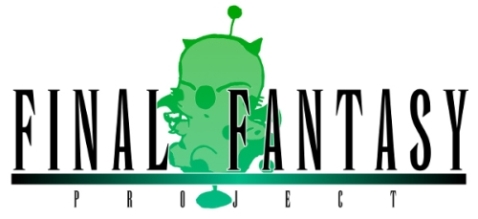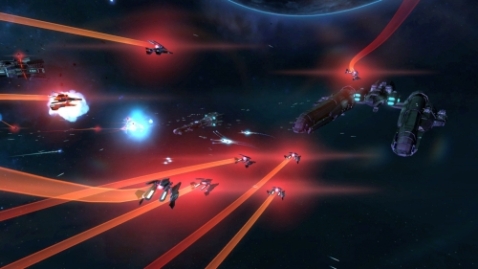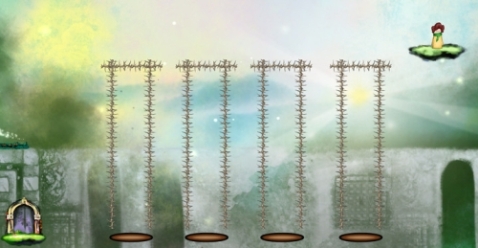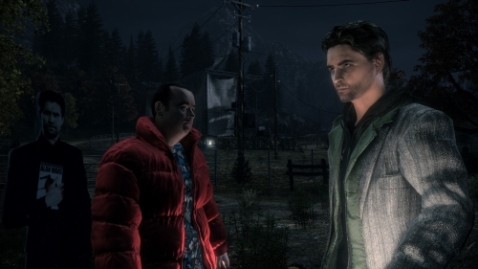The Final Fantasy Project: Final Fantasy V, part 11

Artwork from a sketch by Yoshitaka Amano
One of the things I’m enjoying about the plot of this game is that unlike its predecessors, it’s giving me something that the series has lacked. The characters here don’t just have reasons for their actions, they have motivations.
Reasons are what drive the plots of the previous four games, which is most notably to the detriment of the “story-driven” Final Fantasy II and Final Fantasy IV. You have a clear picture of what the characters need to do in those games, sure. What you don’t get, ever, is a reason why. Yes, Kain is there helping you take down Golbez, but why he’s doing so is never discussed beyond a vague handwaving of “well, Golbez did control him a couple of times.”
Sure, the world is in danger, but that’s not motive, that’s a reason.
By contrast, the crew in Final Fantasy V has a motivation. Sure, there are many occasions – such as now – when the primary motivator for the group is “guilt,” since they sort of exacerbated the injuries of the drake that they’re now trying to save. But guilt is at least a motivator, and it indicates characters trying to fix mistakes. So that’s a good thing all around.
Why no one’s funding it

I asked why no one would invest money on this idea, then I played it and my question was answered in short order.
Looking through Kickstarter, I see a refrain come around over and over, that it’s due to simple publisher/venture capitalist stupidity that a given project isn’t already being made. That every single project on there is an obvious moneymaker, especially the successful projects, and that there’s no possible reason other than sheer dogged stupidity that money isn’t being sunk into it.
That seems pretty immediately wrong, though, just on the face of it. I’m not going to say that rich people are smart by definition – I’ve met some staggeringly dumb people with tons of money, for example – but I will say that most successful venture capitalists and publishers don’t stay that way because they’re not good at picking what they fund. If they’re leaving money on the table, there has to be a reason for it.
Fortunately, several of these reasons are pretty obvious to me just at a glance, and I’m not even an investor. So why is it that no one is funding a given game outside of Kickstarter?
Demo Driver 8: Alter World

If your first thought is “that looks like some bullshit right there” then your first thought is right.
I don’t like saying harsh things about an indie game. Every single time I do so, I realize that I’m saying unkind things about something that someone worked hard to build, a labor of love – especially when it’s a title put together by a single person, which is quite the task. I take no pleasure in it. I don’t feel like it’s a fun opportunity to get digs in, not when it’s something a small group of people created out of nothing.
No amount of feeling bad makes Alter World a fun title to actually play, though, so it kind of has to take its lumps. So you know what tone this piece is going to have. It may be a reluctant piece of work, but this is a game that’s going on retail release for money, and that means that it gets critiqued as something asking you to spend money. And the fact is that Alter World, labor of love or not, is doing something that lots of games have done before but isn’t actually fun to play.
The myth of the killer app

I’m pretty sure this was meant to be a killer app at some point and I’m absolutely certain it didn’t kill much of anything.
Killer apps don’t exist.
Some terminology for the uninitiated – a “killer app” is a game for a specific platform that’s so good, you just have to have it. It’s one of the big things that console exclusives are made of, games that are really awesome but just can’t be bought unless you’re willing to shell out for a Wii or a PS4 or a Macintosh or whatever. And you’ve probably heard of several; games like Super Mario Bros. and Sonic the Hedgehog often get brought up as examples of the first killer apps.
Only they don’t actually exist. The concept and terminology has been around for a long time, usually in concert with gaming platforms, and they just don’t exist in the way that writers and even companies want to pretend they do. Absolutely no one is going to buy a $300 piece of hardware for a game. Ever. It doesn’t exist and we have to stop pretending it does.
 A character who can solve no problems is boring. A character who can solve every problem is boring. But odds are that you’re more worried about hitting the second threshold than the first, because most roleplayers tend to make competent sorts. Which is still fine… until, of course, you get to learning new tricks.
A character who can solve no problems is boring. A character who can solve every problem is boring. But odds are that you’re more worried about hitting the second threshold than the first, because most roleplayers tend to make competent sorts. Which is still fine… until, of course, you get to learning new tricks.